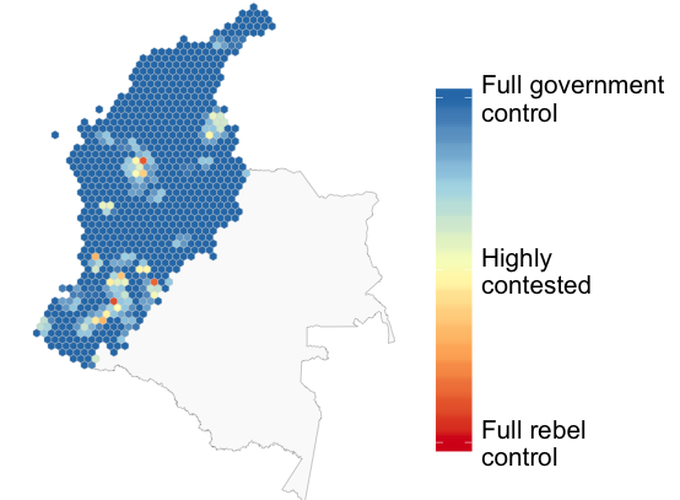Territorial control in civil wars. Theory and measurement using machine learning
Abstract
Territorial control is a central variable in the study of civil wars–yet, we lack data that are fine-grained enough to capture subnational dynamics and offer cross-country coverage. The paper advances an innovative measurement strategy for territorial control in asymmetric civil wars. Territorial control is conceptualized as an unobserved latent variable that can be estimated via observed variation in rebel tactics. The measurement strategy builds on a theoretical model of rebel tactics by which rebels use terrorism less when they control a given area—preferring conventional tactics, which require higher levels of territorial control. The latent variable territorial control is estimated via a Hidden Markov Model (HMM). I leverage geo-coded event data and use a function of the relative frequency of terrorist attacks and conventional war acts, weighted by time and distance, as an observable indicator for rebel tactics. The model yields monthly estimates of territorial control for asymmetric civil wars at a resolution of 0.25 degree minimum diameter hexagonal grid cells. The validation of the estimates for the Colombian and Nigerian civil wars suggests HMMs as a fruitful avenue to estimate spatiotemporal variation of territorial control.
